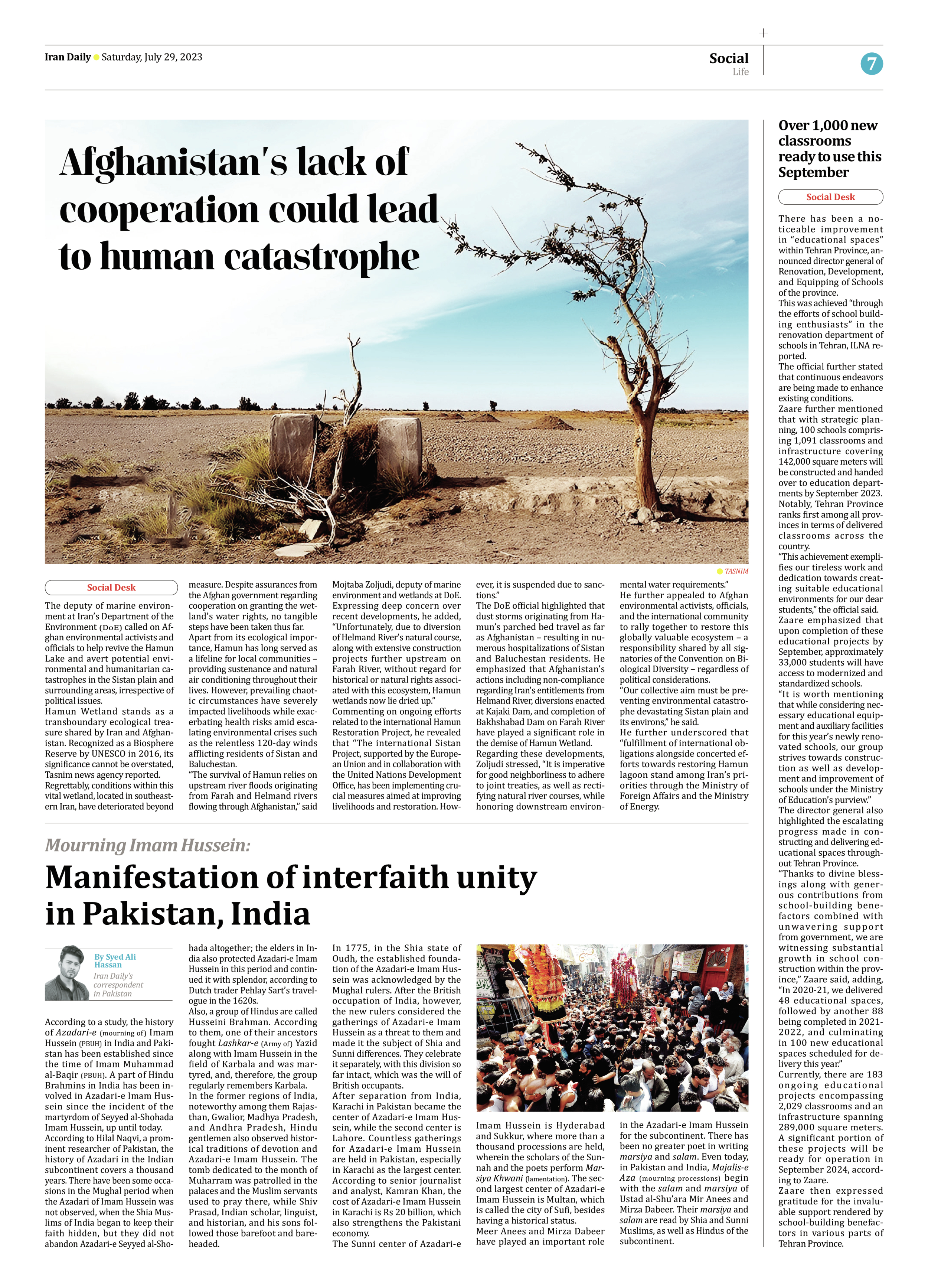
Afghanistan’s lack of cooperation could lead to human catastrophe
The deputy of marine environment at Iran’s Department of the Environment (DoE) called on Afghan environmental activists and officials to help revive the Hamun Lake and avert potential environmental and humanitarian catastrophes in the Sistan plain and surrounding areas, irrespective of political issues.
Hamun Wetland stands as a transboundary ecological treasure shared by Iran and Afghanistan. Recognized as a Biosphere Reserve by UNESCO in 2016, its significance cannot be overstated, Tasnim news agency reported.
Regrettably, conditions within this vital wetland, located in southeastern Iran, have deteriorated beyond measure. Despite assurances from the Afghan government regarding cooperation on granting the wetland’s water rights, no tangible steps have been taken thus far.
Apart from its ecological importance, Hamun has long served as a lifeline for local communities – providing sustenance and natural air conditioning throughout their lives. However, prevailing chaotic circumstances have severely impacted livelihoods while exacerbating health risks amid escalating environmental crises such as the relentless 120-day winds afflicting residents of Sistan and Baluchestan.
“The survival of Hamun relies on upstream river floods originating from Farah and Helmand rivers flowing through Afghanistan,” said Mojtaba Zoljudi, deputy of marine environment and wetlands at DoE.
Expressing deep concern over recent developments, he added, “Unfortunately, due to diversion of Helmand River’s natural course, along with extensive construction projects further upstream on Farah River, without regard for historical or natural rights associated with this ecosystem, Hamun wetlands now lie dried up.”
Commenting on ongoing efforts related to the international Hamun Restoration Project, he revealed that “The international Sistan Project, supported by the European Union and in collaboration with the United Nations Development Office, has been implementing crucial measures aimed at improving livelihoods and restoration. However, it is suspended due to sanctions.”
The DoE official highlighted that dust storms originating from Hamun’s parched bed travel as far as Afghanistan – resulting in numerous hospitalizations of Sistan and Baluchestan residents. He emphasized that Afghanistan’s actions including non-compliance regarding Iran’s entitlements from Helmand River, diversions enacted at Kajaki Dam, and completion of Bakhshabad Dam on Farah River have played a significant role in the demise of Hamun Wetland.
Regarding these developments, Zoljudi stressed, “It is imperative for good neighborliness to adhere to joint treaties, as well as rectifying natural river courses, while honoring downstream environmental water requirements.”
He further appealed to Afghan environmental activists, officials, and the international community to rally together to restore this globally valuable ecosystem – a responsibility shared by all signatories of the Convention on Biological Diversity – regardless of political considerations.
“Our collective aim must be preventing environmental catastrophe devastating Sistan plain and its environs,” he said.
He further underscored that “fulfillment of international obligations alongside concerted efforts towards restoring Hamun lagoon stand among Iran’s priorities through the Ministry of Foreign Affairs and the Ministry of Energy.







